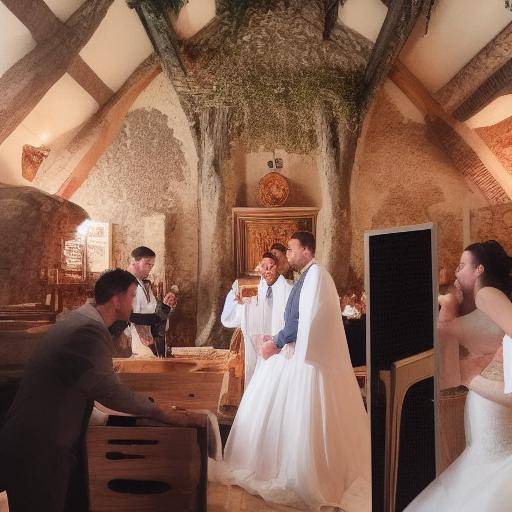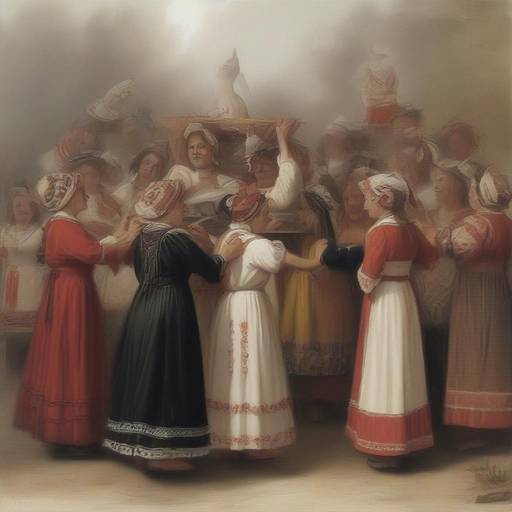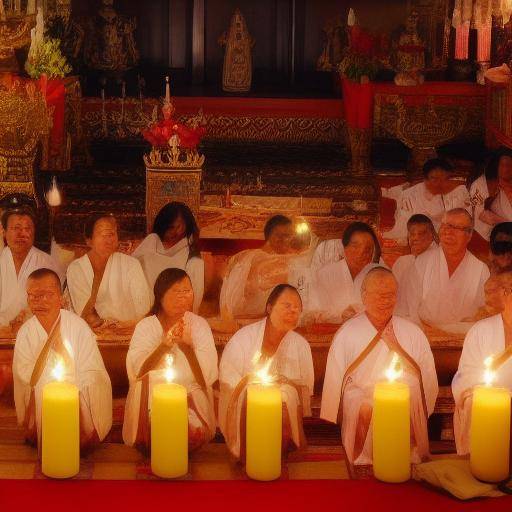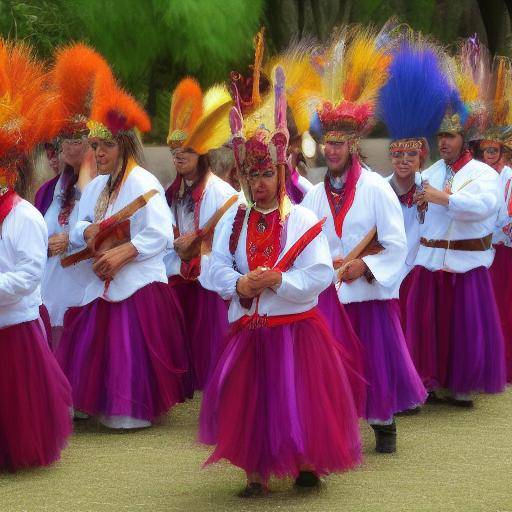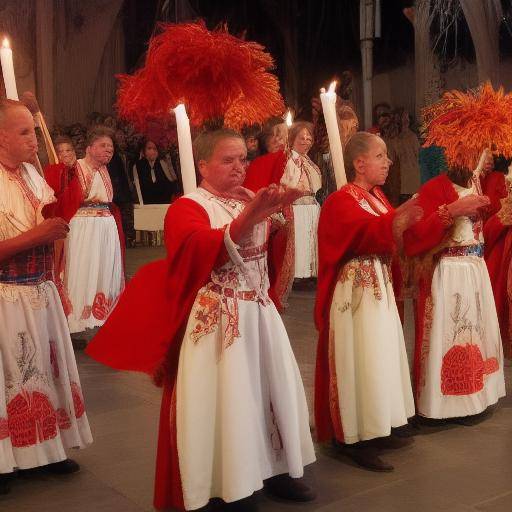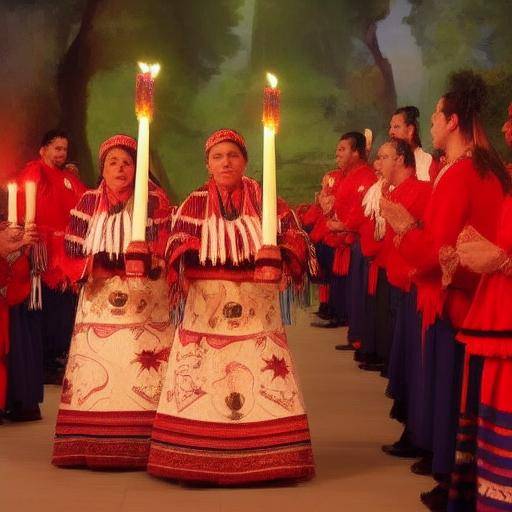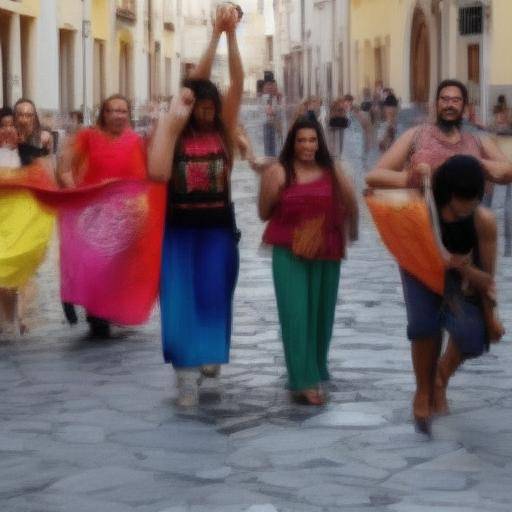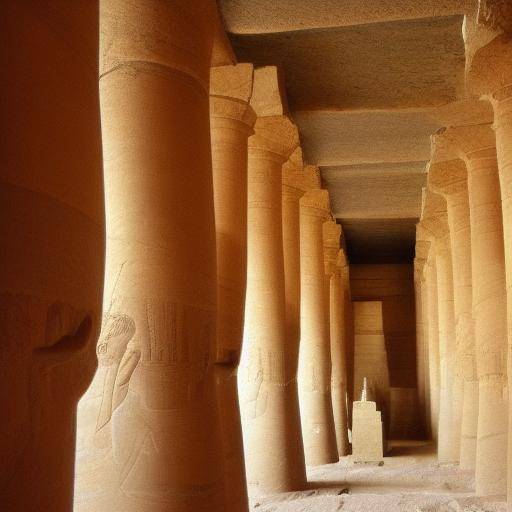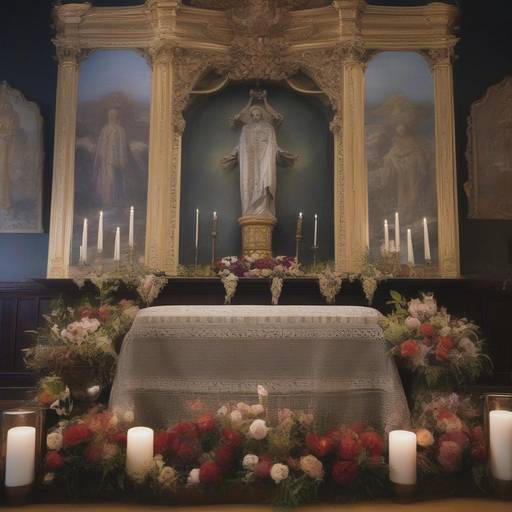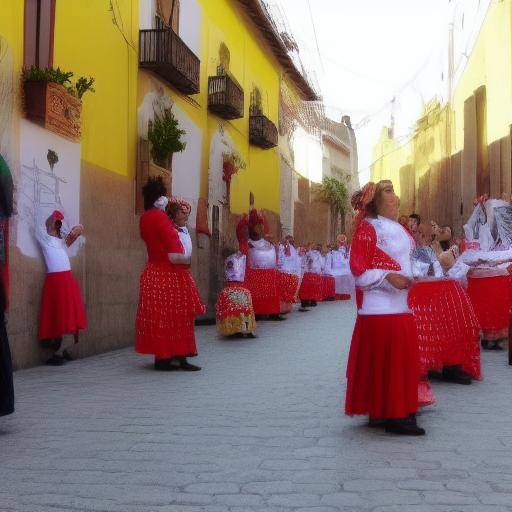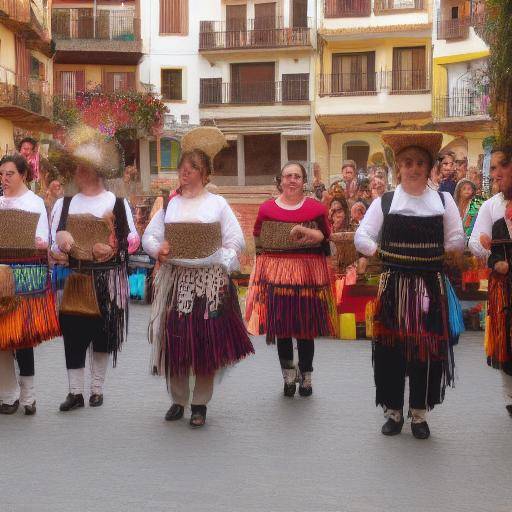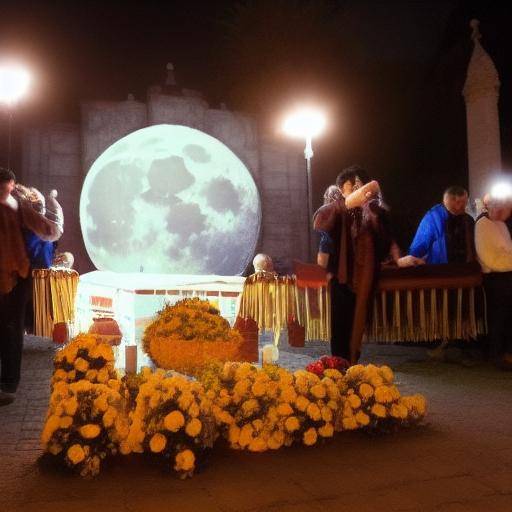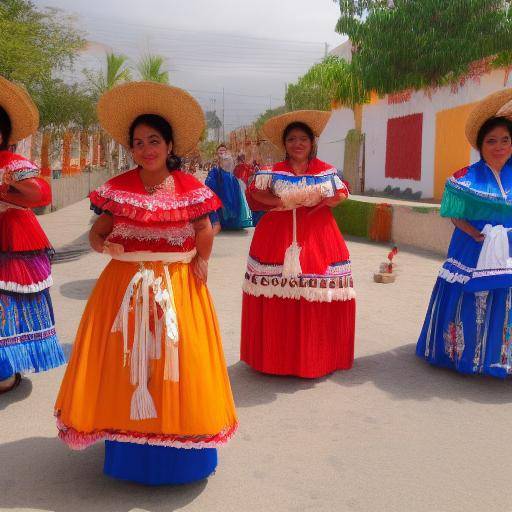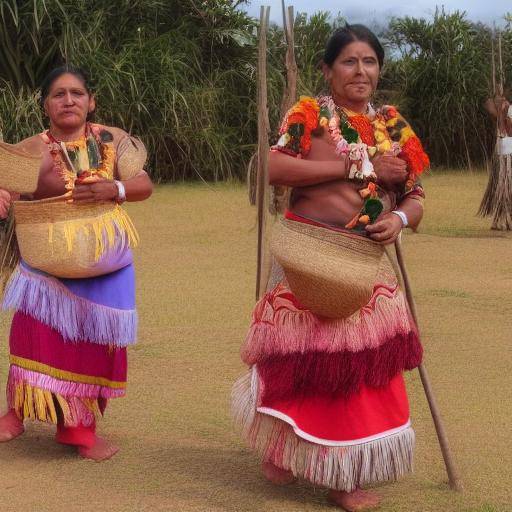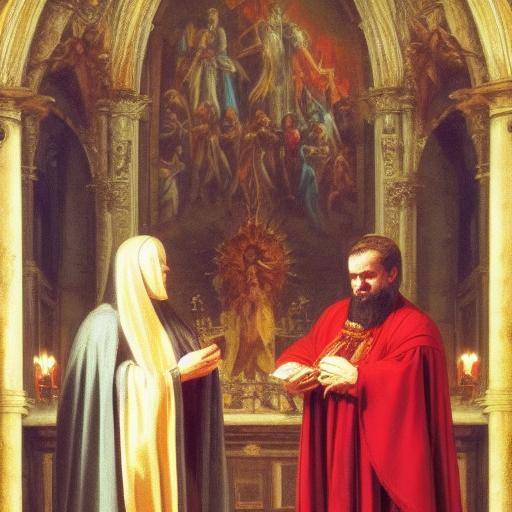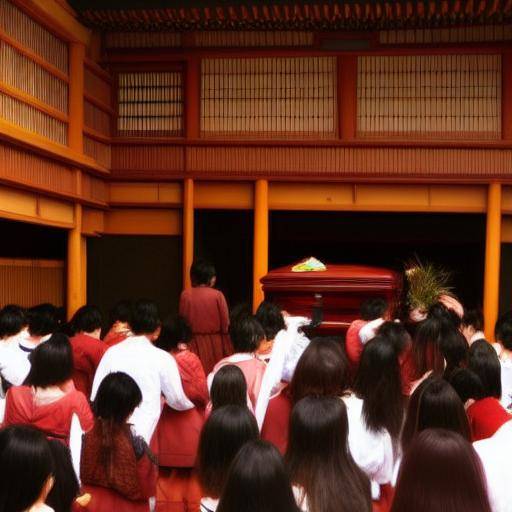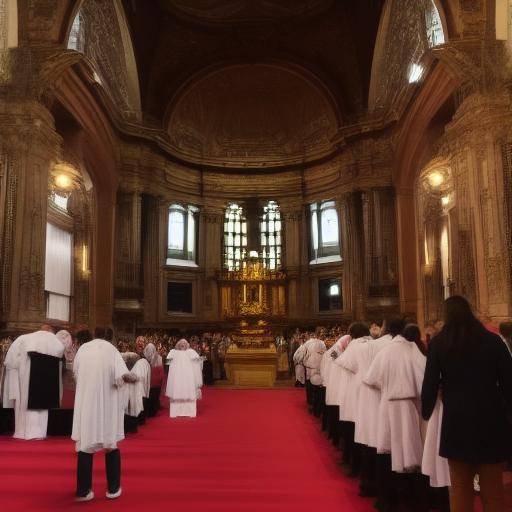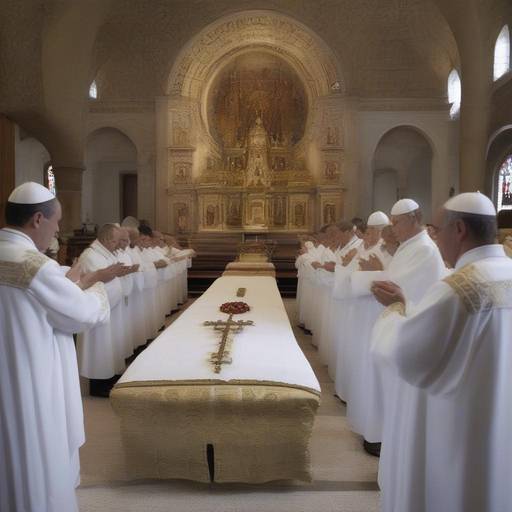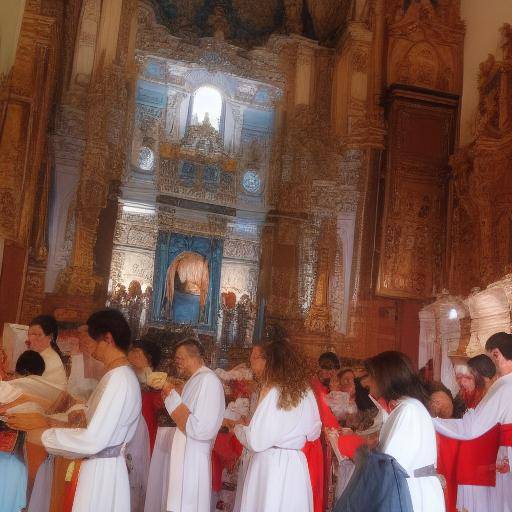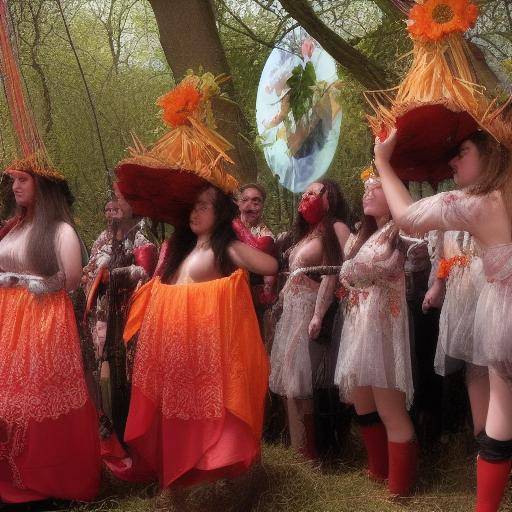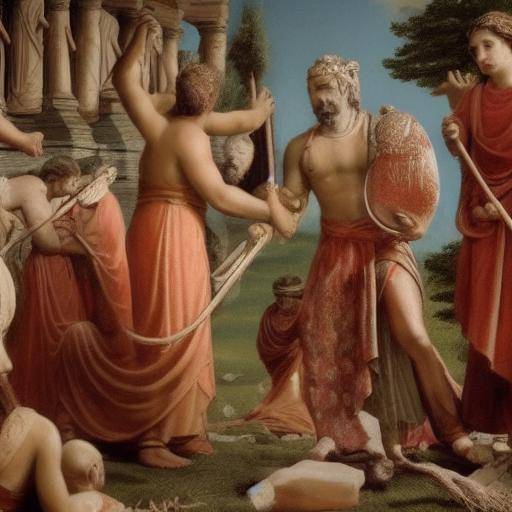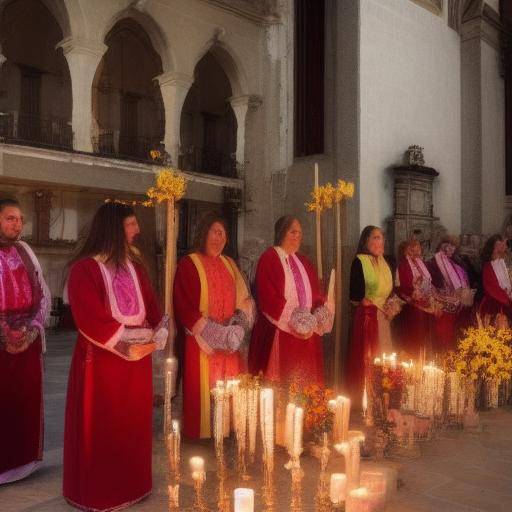
Introduction
Funeral traditions in Egyptian culture are a fascinating theme that allows us to enter into the rich legacy of ancient Egypt. Throughout history, the funeral practices of this civilization have left a lasting mark on humanity, revealing the importance that the Egyptians attached to life after death. In this article, we will explore in detail the funerary traditions, Egyptian culture and associated rituals, plunging ourselves into a historical and cultural journey that will not stop surprising us.
History and Background
Egyptian civilization has left a unique legacy regarding its funeral traditions. Since prehistoric times, ancient Egyptians developed ritual complexes and beliefs around death and beyond. Egyptian funeral practices were imbued with a deep fascination for life after death, which was reflected in the meticulousness with which they prepared their deceased and in the construction of monumental graves and funeral complexes.
One of the best known funeral practices of Egyptian culture is the process of mummification. This ancient process involved the extraction of internal organs and the embalming of the body to preserve it in the beyond. Egyptian tombs, such as pyramids and hypogeos, were developed structures to house not only the mortal remains, but also the treasures and objects that the deceased would need in his future life.
Egyptian funeral rituals were imbued with deep spirituality and religious beliefs. The Egyptian worldview of life after death included the notion of a final judgment in which the deceased should present his heart to the gods to be judged for his actions in life. These beliefs shaped funeral practices and how the Egyptians built their graves and prepared their deceased for the journey to the beyond.
Deep analysis
Despite the antiquity of Egyptian funeral traditions, their influence endures until today. The worldwide fascination with Egyptian culture has led to numerous archaeological studies and research that have shed light on the complexity and meaning of these rituals. The preservation of the bodies, funeral objects and hieroglyphics recorded in the graves have provided valuable insights into the beliefs and practices of Egyptian society.
In addition, the influence of Egyptian funeral traditions extends to the arts, architecture, religion and literature. The artistic representations of funeral rituals, mythological stories related to the beyond and the preservation of the royal graves have inspired generations of artists, writers and academics. The Egyptian cosmovision of death and beyond remains a recurring theme in popular culture and academia, generating a continuous interest in unraveling the mysteries of this ancient civilization.
Comprehensive review
The importance of understanding funeral traditions in Egyptian culture lies in its lasting impact on our understanding of the past and its influence on our appreciation of cultural diversity. Studying Egyptian funeral practices gives us a unique perspective on how old societies approach death, beyond and transcendence. By carefully analyzing these rituals, we can enrich our understanding of the human condition and the different ways in which cultures have honored their deceased throughout history.
The comparison of Egyptian funeral traditions with those of other civilizations allows us to identify significant similarities and differences in the concepts of death culture and the farewell ritual. Although each society approaches death from its own cultural perspective, funeral traditions reveal a common thread that unites humanity in its pursuit of meaning and transcendence beyond earthly life.
Comparative analysis
By comparing Egyptian funeral traditions with those of other cultures, a fascinating mosaic of practices, beliefs and rituals emerges that reflect the richness and diversity of human experience to death. While some cultures emphasize cremation as a means of freeing the spirit of the deceased, others opt for rites of inhumation that highlight the connection of the deceased with land and nature. Differences in funeral practices also reveal the different conceptions of life after death and the impact of religious beliefs on how loved ones are honored and remembered.
The similarities between the Egyptian funeral traditions and those of other cultures, such as the elaboration of monumental graves, the preservation of the bodies and the realization of rituals passing to the beyond, shed light on the universal aspects of human experience before death. The concern to honor and remember the deceased, as well as the desire to offer comfort to loved ones, crosses cultural and temporal borders, revealing the vital importance of funeral practices in building identity and collective memory.
Practical Tips and Recommendations
Although the funerary traditions in Egyptian culture belong to a millennial past, its legacy continues to inspire reflections on death, the meaning of life and the way we honor those who have left. In exploring these traditions, we can learn valuable lessons that allow us to reflect on our own relationship with death and funeral ritual. Here are some practical tips for those interested in deepening this fascinating theme:
- Explore Museums and Exhibitions: Numerous museums around the world host collections dedicated to Egyptian culture, offering visitors the opportunity to contemplate original funeral artifacts, artistic representations and rebuilding of tombs that illustrate Egyptian funeral traditions.
- Investigate reliable sources: For those interested in academic studies on Egyptian funeral traditions, it is advisable to consult specialized sources, such as archaeology books, anthropological studies and publications of institutions dedicated to the research of ancient Egypt.
- Participate in Cultural Events: Fairs, conferences and events dedicated to Egyptian culture often offer talks and exhibitions related to funeral traditions and the Egyptian cosmovision of death. Participating in these events provides a unique opportunity to get into this fascinating cultural arena.
Conclusions and FAQs
Conclusions
Funeral traditions in Egyptian culture represent a human legacy that has transcended the centuries, inspiring admiration and reflection in later generations. Meticulousness of funeral practices, the depth of beliefs in the beyond and the lasting influence on culture






